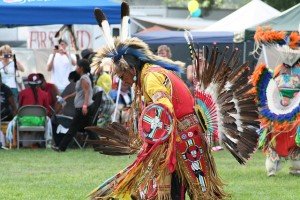I have had the honour and privilege of working within the First Nations, Métis and Inuit populations throughout my career as a psychotherapist. I use a predominantly relational, emotion and solution-focused approach in working with clients. Throughout my ethical courses and training, both 12 years ago in my Masters Degree, as well as subsequent conferences and workshops over the years, I have been able to create an ethical, foundational way of thinking and being as a mental health practitioner. However, the multi-cultural work I do involved learning ethics on the job and within the urban Aboriginal community. Due to the trauma I encountered extensively within this community, the ethics of working with clients that have experienced complex trauma, helped and led the ways at times, but are only a beginning. I truly believe it is necessary to create a new ethical code to practice effectively within this wonderful community.
In order to be a trusted mental health provider within the urban Aboriginal community, it is important to become a visible presence in that community. When invited I attended ceremonies, Pow Wows and traditional Teachings. This allowed Aboriginal people to see me as a presence, interact with them and observe me with other people and Elders within their community. This is an important piece as a mental health provider because Aboriginal people have every reason not to trust me, as a Caucasian person that is part of mainstream Canadian culture. There is also a different relationship with “authority” as traditional Elders and leaders live within and are a part of the community. There has also been many years of racism, oppression and subsequent intergenerational trauma, all impacting the Aboriginal relationship with “authority”, especially in mainstream, Canadian culture. When your face is seen in the community and people begin to chat with you, word of mouth spreads quickly. While I believe word of mouth endorsements are powerful among all peoples, it is especially important when working within oppressed communities.
Being a part of the community you work in leads to a different level of vulnerability as you are both a real person and a professional. So ethical issues become complex. It is important to maintain healthy boundaries to avoid re-traumatization, however those boundaries will look very different than you may expect.
During my supervision within my masters degree, I remember a supervisor stating that I was to never touch a client. However, Aboriginal people hug to greet. As a part of the community, I have found hugging to be frequent and expected. If you do not hug, you may be perceived as uncaring and untrustworthy. This is also a culture where gifts are often given. Most of these gifts do not have monetary value and are handmade. They are a symbol of appreciation and inherent in Aboriginal culture. If I followed my original ethical training, which required me to discuss with a client the reason they are giving me a gift as a therapeutic issue that needs to be explored, I would alienate and lose them. Gifts and offerings are common before opening healing and sacred spaces, and therapy sessions are considered a healing, sacred space. While working within this community I often support clients that had a conflict or interpersonal issue with another community member that I knew.
Working within the Aboriginal community is incredible and I feel blessed everyday to have been accepted and embraced. It is a population that will challenge you personally and professionally to walk in a genuine, authentic way and still maintain professional boundaries. You will need to develop a new understanding of what professional ethics and boundaries are so you are consistent and caring, but also flexible and trusted.
*The views expressed by our authors are personal opinions and do not necessarily reflect the views of the CCPA